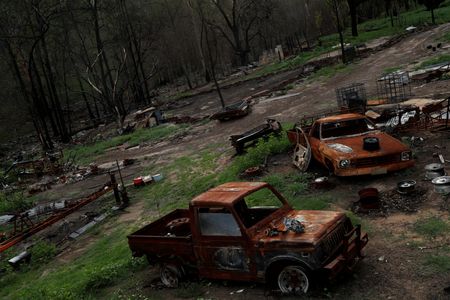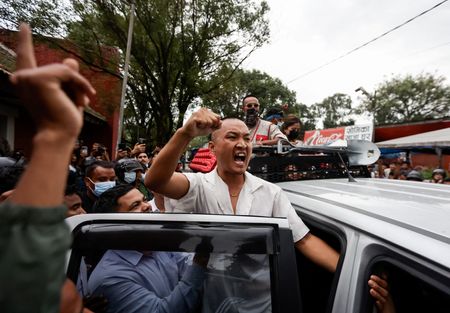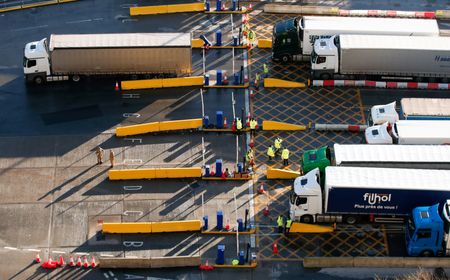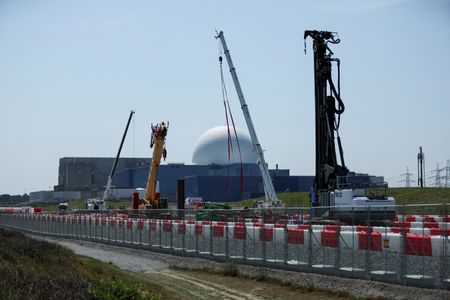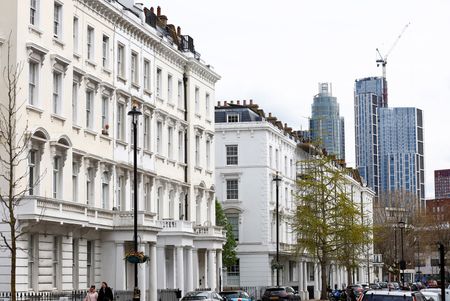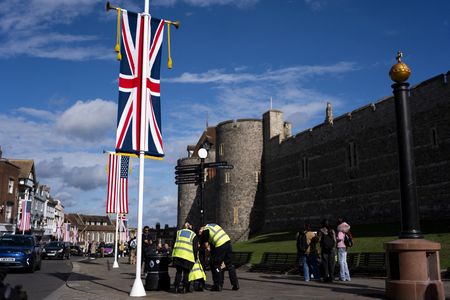By Pratima Desai
LONDON (Reuters) – Major commodity traders Gunvor and Vitol are waiting to withdraw large volumes of Russian-produced aluminium from London Metal Exchange-approved warehouses in the South Korean port of Gwangyang, three sources familiar with the matter said.
Gunvor and Vitol mostly focus on energy, but oil and gas trading giants more broadly have made significant moves into metals markets to explore opportunities offered by the global clean energy transition.
It is not known why Gunvor or Vitol want the aluminium in LME warehouses in Gwangyang, where the lion’s share of metal is mostly of Russian origin – deposited after Russia invaded Ukraine in 2022 as consumers shunned the metal.
Vitol and Gunvor declined to comment.
LME data shows metal earmarked to leave warehouses in Gwangyang run by ISTIM – a major operator of LME depositories in the port – at 97,750 metric tons at end-February, worth more than $250 million. Queuing time to take delivery was 81 calendar days, or more than 11 weeks, the data showed.
Queues typically only form when large amounts of metal warrants, title documents conferring ownership, are cancelled in a short period of time.
The sources said Vitol has already taken delivery of some aluminium from LME warehouses in Gwangyang. Gunvor has not yet taken any, other sources said.
In late December, 84,000 tons of aluminium stored in LME warehouses in Gwangyang was cancelled, according to LME data, which also shows another 21,150 was cancelled in January and February.
A small proportion was loaded out in January, while in February, 33,200 tons was removed and 26,800 tons of aluminium has been removed from LME warehouses in Gwangyang so far in March.
Cancelled warrants at 30% of Gwangyang’s total stocks of 123,325 tons on March 28 suggest another 37,125 tons of aluminium is due to leave the LME system.
Russian President Vladimir Putin in February offered the U.S. the opportunity for joint exploration of the country’s rare earth metals deposits, as well as the supply of aluminium to the U.S. domestic market, under a future economic deal.
Putin said Russian companies could supply up to two million metric tons annually of the metal used in the transport, construction and packaging industries.
Industry sources say major destinations for Russian-origin aluminium are China and Turkey, where users accept sanctioned metal produced in Russia.
The U.S. Treasury Department and the British government in April last year banned the 148-year-old LME and the Chicago Mercantile Exchange (CME) from holding Russian aluminium, copper and nickel produced from April 13.
Aluminium in Russia is produced by Rusal, which last year supplied nearly four million tons or more than 5% of the global total estimated at around 74 million tons.
Aluminium prices on the LME held up for a few weeks after Donald Trump became U.S. president, but have dropped 7% since March 12 to around $2,540 a metric ton on concern about U.S. tariffs and a global trade war.
(Reporting by Pratima Desai; Editing by Veronica Brown and Jan Harvey)



